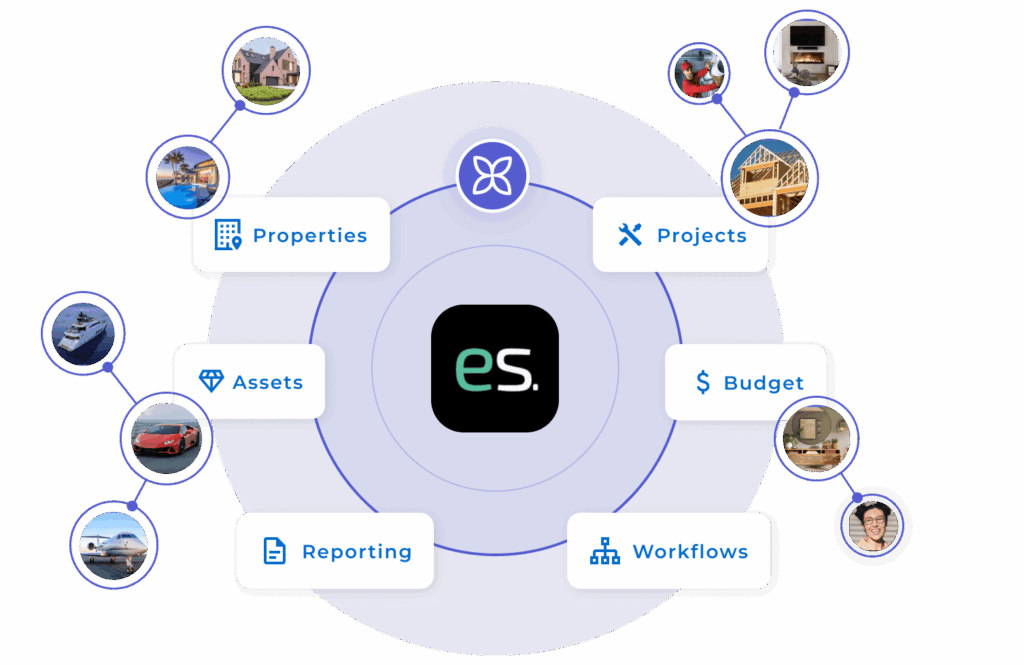Every year brings renewed hope for positive change and the determination to make it happen. However, while 77% of people kept their New Year’s resolutions for just two weeks in 1988, today’s statistics are even more sobering—only 4% successfully maintain their goals throughout the year. Moreover, 57% of people don’t even bother making resolutions anymore when it comes to organizing their homes and implementing effective household management systems.
Fortunately, household management systems have evolved dramatically since then, offering digital solutions that make organizing your home and simplifying your life more achievable than ever before.
Why Traditional Organization Methods Fall Short for Household Management Systems
The failure of most home organization efforts isn’t due to lack of willpower or motivation. Instead, many people set unrealistic goals without the proper tools or structure to support long-term success. Additionally, traditional paper-based systems and scattered digital tools create more complexity than they solve.
Modern digital organization platforms address these fundamental challenges by providing:
- Centralized information storage for all family and home-related data
- Automated reminders that prevent important tasks from being forgotten
- Collaborative features that distribute responsibilities among family members
- Mobile accessibility that keeps information available wherever you are
Essential Components of Effective Household Management Systems
Digital Home Organization Infrastructure
Running a household effectively resembles managing a small business—you must handle budgets, coordinate multiple people, maintain schedules, and ensure smooth daily operations. Therefore, comprehensive platforms need robust organizational foundations.
Financial Management Features:
- Budget tracking and expense monitoring
- Bill payment reminders and automated scheduling
- Insurance policy and warranty management
- Utility and subscription renewal tracking
Communication and Coordination:
- Unified messaging platforms for family and service providers
- Shared calendars with family schedules and appointments
- Task assignment and completion tracking
- Emergency contact information and important documents storage
Streamlined Task and Project Management for Household Management Systems
Whether you’re coordinating a home renovation or managing weekly household routines, modern platforms excel at breaking down complex projects into manageable steps. Furthermore, these solutions provide visibility into who’s responsible for what and when tasks need completion.
Key capabilities include:
- Custom task templates for recurring activities like seasonal preparations
- Project timelines with milestone tracking and deadline alerts
- Resource allocation for managing household staff or family member responsibilities
- Progress monitoring with real-time updates and completion notifications
Inventory and Asset Management in Digital Solutions
One of the most valuable features of modern organization platforms is comprehensive inventory tracking. Similarly, this functionality proves invaluable for insurance purposes, estate planning, and general organization.
Inventory features encompass:
- Photo documentation with detailed descriptions and estimated values
- Category organization by room, type, or importance level
- Insurance comparison to ensure adequate coverage for valuable items
- Maintenance scheduling for appliances, vehicles, and other assets
Digital Tools That Transform Household Management Systems
All-in-One Platform Solutions
The most effective organization platforms integrate multiple functions into a single, user-friendly interface. Therefore, instead of juggling separate apps for budgeting, scheduling, and communication, families can access everything from one central location.
Popular platform features:
- Cloud-based storage ensures information accessibility from any device
- Multi-user permissions allow family members appropriate access levels
- Data synchronization keeps everyone updated with the latest information
- Security protocols protect sensitive family and financial data
Mobile-First Design for Home Organization
Since home management happens throughout the day and across multiple locations, mobile accessibility is crucial. Additionally, the best digital platforms prioritize mobile user experience without sacrificing functionality.
Mobile advantages include:
- Real-time updates when tasks are completed or situations change
- Photo capture for inventory documentation or project progress
- Push notifications for important reminders and deadlines
- Offline functionality for areas with limited internet connectivity
Integration Capabilities
Rather than replacing all existing tools, the most successful platforms integrate with applications families already use. Moreover, this approach minimizes learning curves while maximizing functionality.
Common integrations:
- Calendar applications like Google Calendar or Apple Calendar
- Financial tools including banking apps and budgeting software
- Communication platforms such as email and messaging services
- Smart home devices for automated task triggering and monitoring
AI-Powered Household Management Systems Features
Artificial intelligence is transforming how digital platforms operate, making them more intuitive and proactive. Similarly, these advanced features learn from family patterns and preferences to provide personalized recommendations.
AI capabilities include:
- Predictive scheduling that suggests optimal timing for recurring tasks
- Automated categorization of expenses, inventory items, and documents
- Smart notifications that prioritize urgent items and reduce notification fatigue
- Pattern recognition that identifies trends in spending, maintenance needs, or family schedules
Intelligent maintenance management uses historical data and manufacturer recommendations to predict when appliances need service, preventing costly breakdowns and extending asset lifespans.

Creating Your Personalized Organization Strategy
Step 1: Assess Your Current Challenges
Before implementing any digital solution, identify your family’s specific pain points. Furthermore, document what currently works well and what consistently causes stress or confusion.
Common challenge areas:
- Communication breakdowns between family members or service providers
- Forgotten deadlines for bills, appointments, or important tasks
- Disorganized information scattered across multiple platforms or locations
- Uneven responsibility distribution leading to burnout for one family member
Step 2: Choose the Right Platform
When evaluating home organization solutions, prioritize platforms that match your family’s technology comfort level and specific needs. Additionally, consider solutions that offer growth potential as your requirements evolve.
Evaluation criteria:
- User interface simplicity for all family members who will use the system
- Feature comprehensiveness that addresses your identified challenge areas
- Data security measures appropriate for your privacy and financial requirements
- Customer support quality for troubleshooting and system optimization
Step 3: Implementation Strategy
Successful digital platforms require gradual implementation and family buy-in. Therefore, start with core features before expanding to advanced capabilities.
Implementation phases:
- Phase 1: Basic information input and calendar synchronization
- Phase 2: Task assignment and completion tracking
- Phase 3: Advanced features like inventory management and financial integration
- Phase 4: Optimization based on usage patterns and family feedback
The Future of Household Management Systems Technology
As technology continues evolving, household management systems will become even more sophisticated and user-friendly. Moreover, integration with smart home devices, voice assistants, and Internet of Things (IoT) technology will create seamless automation for routine tasks.
Emerging trends include:
- Voice-activated task management through smart speakers and virtual assistants
- Automated grocery ordering based on consumption patterns and inventory levels
- Predictive maintenance alerts from connected appliances and home systems
- Energy optimization through intelligent climate and lighting control
Making This Your Year for Home Organization Success
Unlike traditional New Year’s resolutions that rely solely on willpower, digital organization platforms provide the structure and tools necessary for sustainable change. Additionally, these solutions eliminate the overwhelm that comes with trying to remember everything while providing clear pathways for improvement.
The key to success lies in choosing household management systems that fit your family’s lifestyle rather than forcing your family to adapt to rigid organizational methods. Furthermore, start small, celebrate incremental progress, and allow the platform to evolve with your changing needs.
Want to finally achieve the organized, peaceful home you’ve always envisioned? Explore how EstateSpace’s comprehensive platform can transform your home organization approach and create the streamlined, efficient lifestyle your family deserves.



